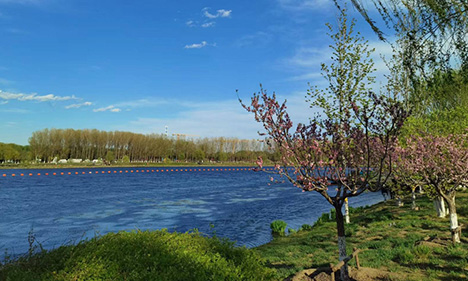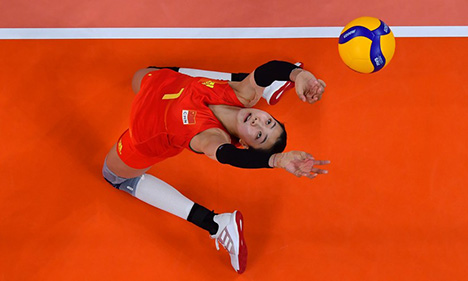US’ high-level visit to Solomon Islands aims to nullify China security pact, uses region as hegemonic fulcrum
After Australia failed to sway the Solomon Islands to thwart the security agreement with China, senior US officials plan to travel to the country this week in an attempt to nullify the already signed security pact, which will be a rare high-level visit with pressure by the superpower.
White House Indo-Pacific coordinator Kurt Campbell and the State Department's top official for Asia will travel to the Solomon Islands, the White House said on Monday, amid "concerns" that the Pacific island country is making a security pact with China, according to Reuters.
Observers pointed out that the "concerns" expressed by the US and Australia over the security pact showed that they use the South Pacific region as an "arena" for competition with China and try to contain China's peaceful development. They predict that the US and Australia may increase military cooperation and civilian investment in the Solomon Islands and other South Pacific countries to counter China's rising influence, but history shows that US promises are often hard to deliver and such cooperation rarely delivers real benefits to ordinary people.
Campbell's visit comes after Washington has warned the Solomon Islands several times over the security pact with China, and Australia made several threats under the name of "concern" and sent senior officials to the island nations.
Yang Honglian, senior researcher of the Pacific Islands Research Center at the Liaocheng University, based in Fiji, told the Global Times that in the US' and its follower Australia's Cold War mentality, South Pacific countries have always been, and must be, their "backyard."
They believe that controlling the island nations through military deployment can maintain their influence in the region, so they speculated China would also take the same step even if China does not have any military activity in the region. They have been hyping a "possibility" and "sense of urgency," trying to guide the local sentiment to be more wary of China, Yang said.
China's State Councilor and Foreign Minister Wang Yi and Solomon Islands Foreign Minister Jeremiah Manele officially signed a framework agreement on security cooperation between the two countries, the Chinese Foreign Ministry confirmed on Tuesday.
"The US Embassy in Solomon Islands has been closed for 29 years. The most recent visit to Fiji made by a US Secretary of State was 37 years ago. Several senior US officials now fancy a visit to some Pacific Island Countries (PICs) all of a sudden after all these years. Are they doing so out of care for PICs or do they have ulterior motives? " asked Wang Wenbin, spokesperson of the Chinese Foreign Ministry, on Tuesday.
"Sensationalizing an atmosphere of tension and stoking bloc confrontation will get no support in the region. Attempts to meddle with and obstruct PICs' cooperation with China will be in vain," Wang noted. Rather than becoming someone's backyard or pawn in a geopolitical confrontation, Pacific island countries need diversified external cooperation and the free choice of their cooperation partners, Wang stressed.
The signing of the security agreement provoked a hysterical reaction from Washington after it witnessed the inability of Canberra to change the cooperation between China and the Solomon Islands, said Chen Hong, president of the Chinese Association of Australian Studies and director of the Australian Studies Center at East China Normal University.
The US and its "agent" in the Asia-Pacific region - Australia - repeatedly put pressure on the Solomon Islands. "This is not only interference in the internal affairs of the Solomon Islands, but also a provocation to China's diplomacy," Chen told the Global Times on Tuesday.
The expert noted that Washington sees the South Pacific region as an important "fulcrum" against China as it has sought to further push forward its Indo-Pacific strategy through the region and to put pressure on China over the South China Sea and Taiwan. "But we see that the Solomon Islands has upheld its sovereignty, independence and right to make its own decisions, demonstrating political wisdom and determination. This is why the US now leaves Australia aside and intervened more directly in the region," Chen said.
"Australia wants the Solomon Islands to just follow what it says. But it's the US behind all this pushing," Frank Sade Bilaupaine, policy consultant at the Foreign Policy Advisory Secretariat at the Solomon Islands Government, told the Global Times in a previous interview.
He pointed out that the security cooperation between China and the Solomon Islands "came about because of the riots in Honiara for the past years and Chinese businesses were always the victim."
"So the Solomon Islands government views it as since we have diplomatic relations, maybe China can assist in building the capacity of the Solomon Islands police," he said.
As a normal exchange between two independent sovereign states, the security cooperation between China and the Solomon Islands is in the common interest of the Solomon Islands and the South Pacific region, a spokesperson of Chinese Foreign Ministry reiterated.
The cooperation is devoted to strengthening the Solomon Islands' capacity to maintain national security, including social order, protection of people's lives and property, humanitarian assistance, and natural disasters response, Wang said.
"China has always insisted its eyes are firmly fixed on mutual economic progress - a win-win situation - rather than military contest or a zero-sum game," said George Balau, a local scholar in the Solomon Islands who published an article in the Solomon Star newspaper recently. "In other words, China is asking that Australia and the US set aside their Cold War mentality to prevent unnecessary stand-offs based on assumptions of strategic malevolent calculations."
The cooperation is welcomed by the local Chinese community.
A Chinese businessman based in Honiara told the Global Times that the Chinese community greatly supports the cooperation on security. He said that the police in the country lack professional training and their equipment is outdated. "We hope their police force can improve after cooperating with China."
Photos
Related Stories
- Local prosecutors indict U.S. marine over sexual assault of woman in Japan's Okinawa
- Washington's new attempt to pit ASEAN against China
- Millions of laid-off Americans plan to stay away indefinitely: report
- Turkish people voice concerns over U.S. bio-labs across world
- Butterfly Exhibition held at Natural History Museum in Los Angeles
Copyright © 2022 People's Daily Online. All Rights Reserved.










